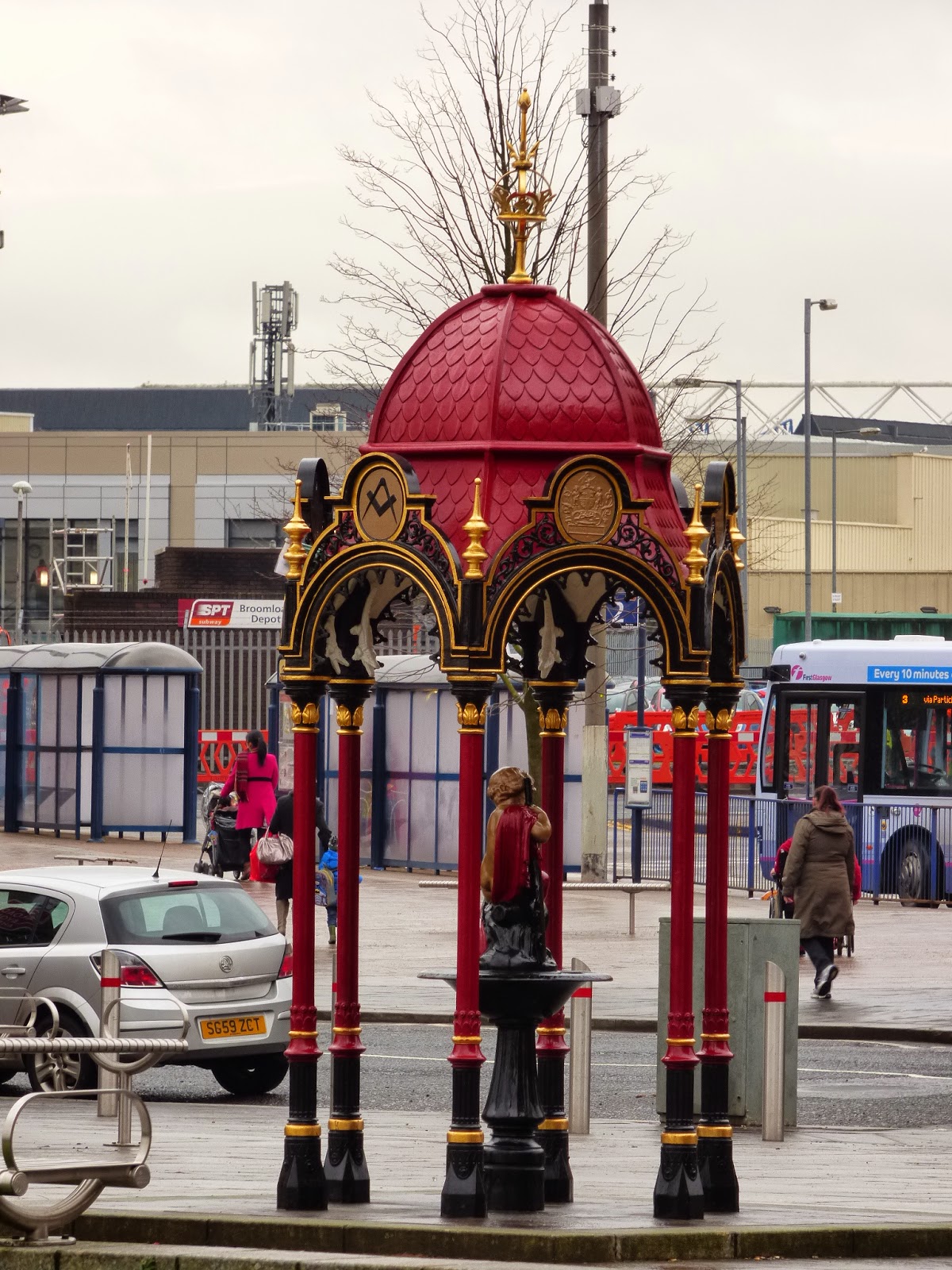Yesterday after morning Mass, we headed across the Clyde to a part of Glasgow called Govan.
It lies directly opposite the Riverside Museum.
Govan has a long history going back to the so - called Dark Ages. Its position beside the River Clyde contributed to this importance.
A Monastery was founded there by St Constantine about 565AD. But it was not till about 1147 that the name GUVEN appears in a document where King David I of Scotland gave the land to the Church of Glasgu.
It was an agricultural area until about the 18th Century, by which time it was known for its handlooming industry.
Then with the growing trade between Britain and America, and the deepening and widening of the Clyde to get ships nearer to the centre of Glasgow, Govan's importance grew.
In 1864, it was granted the status of Burgh.
After 1945, conditions changed and shipbuilding and the associated engineering works began to decline on the Clyde, and Govan began to fade.
There are regeneration plans for the town, and there are many interesting buildings still to be seen.
And in Govan Parish Church there is fascinating collection of grave stones, including a number of Viking hog backed stones.
Also to be seen is a stone coffin believed to have held the body of St Constantine.
A few years ago I had the privilege of attending a stunning play performed in The Shed, a former engine shed belonging to Harland and Wolff. The play was called "The Big Picnic", and told the story of some Scottish soldiers going off to the First World War.
The performance area was large including trenches and a battlefield area. It was incredibly emotional to watch and the music was heart rending and powerful.
But the most remarkable effect was to use the machinery still in the shed. So that, as the soldiers climbed out of the trenches, and moved into the hail of bullets as they crossed No Man's Land, our seats moved with them. As they returned to the shelter of the trench, so did we. But in the pit of your stomach, you knew that they would go over the top again, and you would have to go with them. I will never forget that experience.
http://en.wikipedia.org/wiki/Govan
http://www.historicglasgow.com/index.php?page=govan
http://www.govan-shed.co.uk/































No comments:
Post a Comment